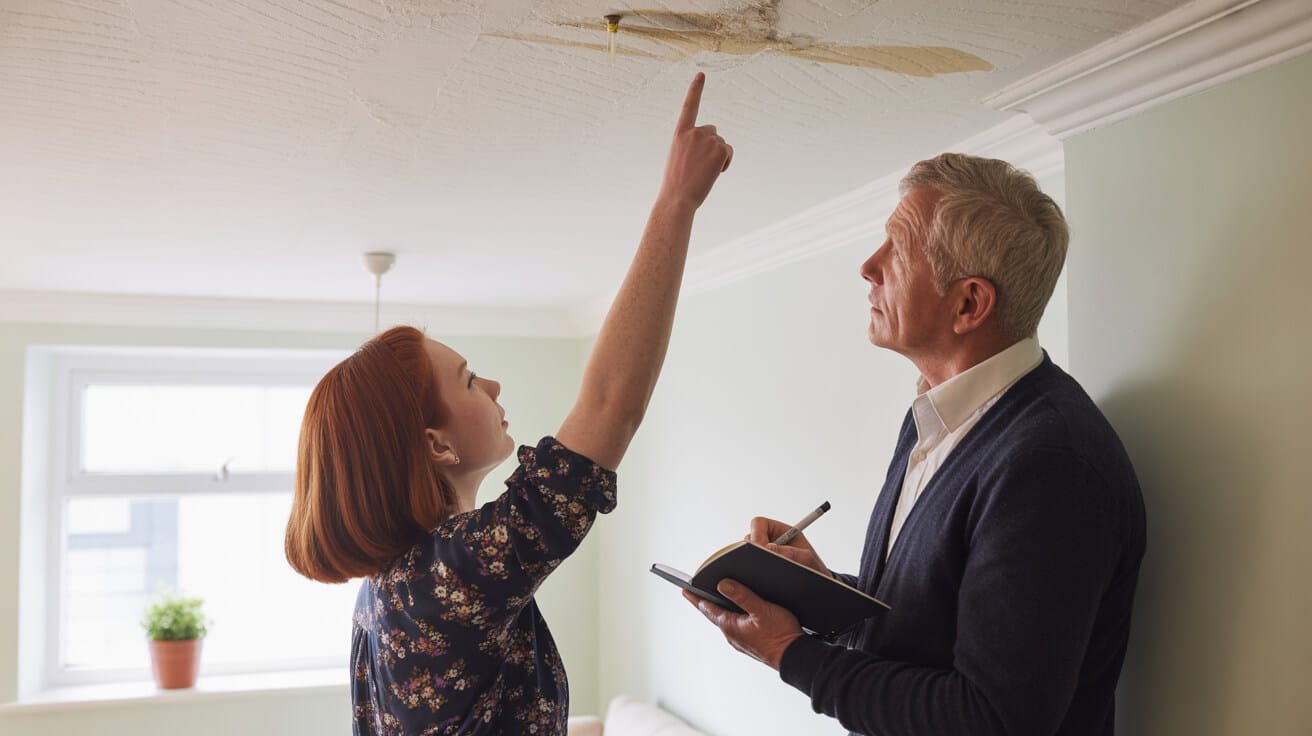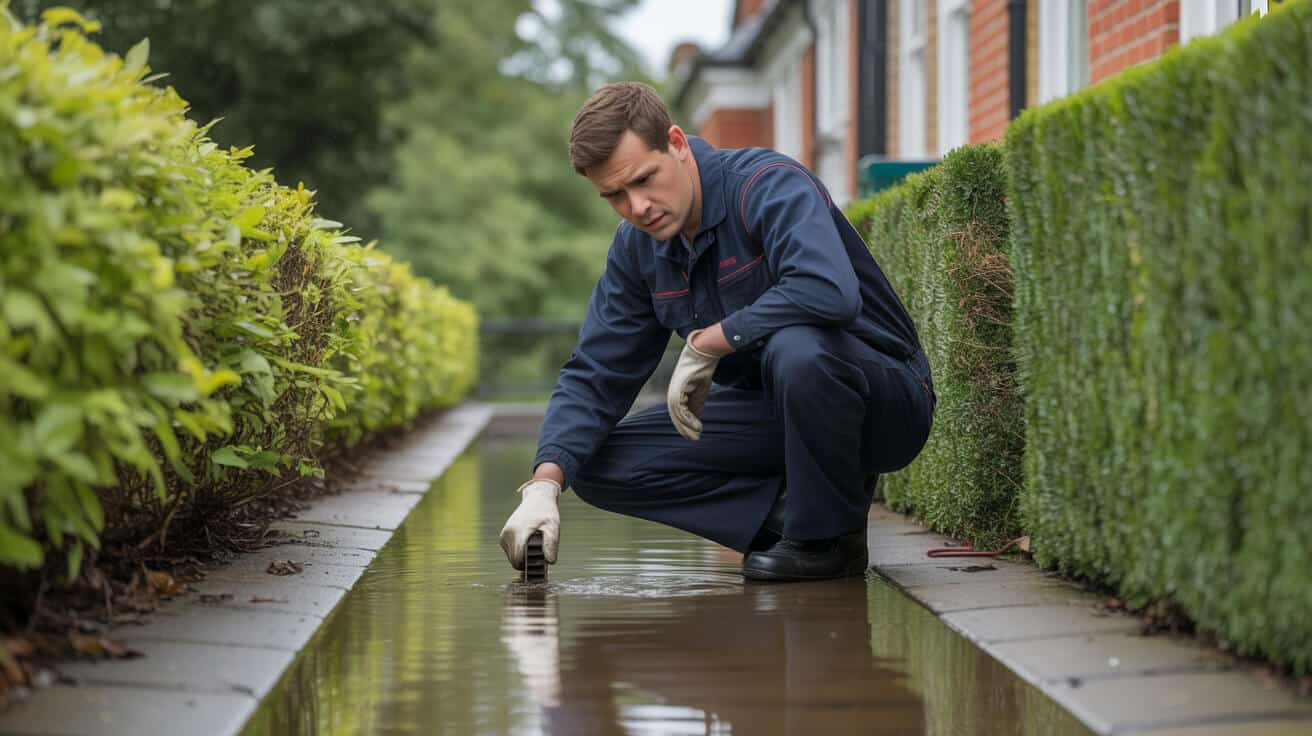 A Homeowner’s Guide to Dealing With a Blocked Drain
A Homeowner’s Guide to Dealing With a Blocked Drain
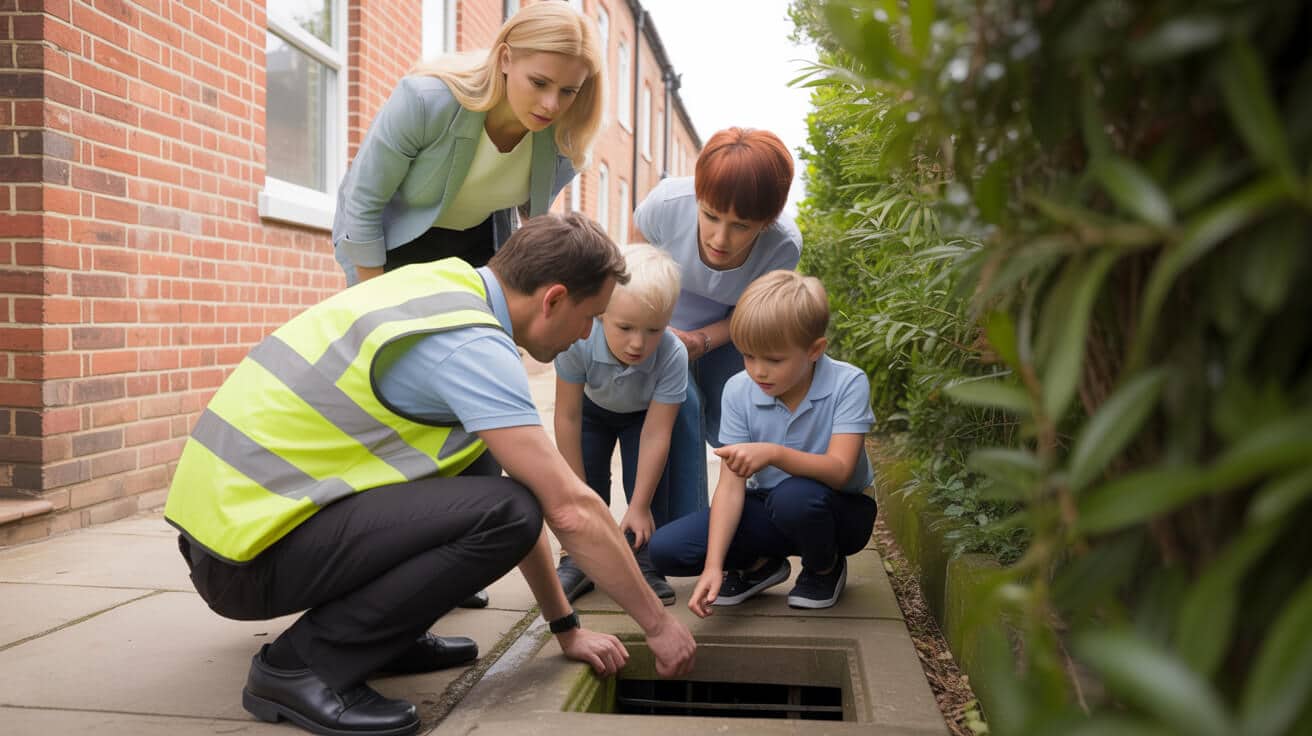
Why Your Home’s Drain Blockages Aren’t Just Bad Luck—How Smart Action Saves You Time, Money, and Stress
blocked drains aren’t a once-in-a-lifetime misfortune. They’re the result of what quietly happens—day after day—in homes, flats, and commercial buildings just like yours. While a slow plughole or odd odour might be dismissed as a temporary quirk, these are early signs of a system quietly raising its hand: something’s not right. For homeowners, landlords, letting agents, and property managers, understanding that blockages are predictable—not random—means you can pivot quickly from minor hassle to long-term control.
What distinguishes a calm, one-visit fix from the chaos of an overflowing kitchen or a tenant complaint at midnight? Not luck. It’s an approach that recognises how water, debris, and habits constantly shape your property’s risk profile. Over 60% of major blockages can be traced to warning signs that were ignored for weeks or months (WaterSafe). Those who take action early avoid not just the mess, but the mounting cost, property disruption, and insurance fights that follow.
Putting off that slow drain won’t make the price go down—only the damage go up.
When you’re proactive—using practical habits and trusted expert support like Plumbers 4U—you transform headaches into opportunity: lower bills, fewer repairs, and a reputation for safeguarding your property. Blockages may happen, but ongoing disruption doesn’t have to.
What Are the Real Warning Signs Your Drains Are Heading for Trouble?
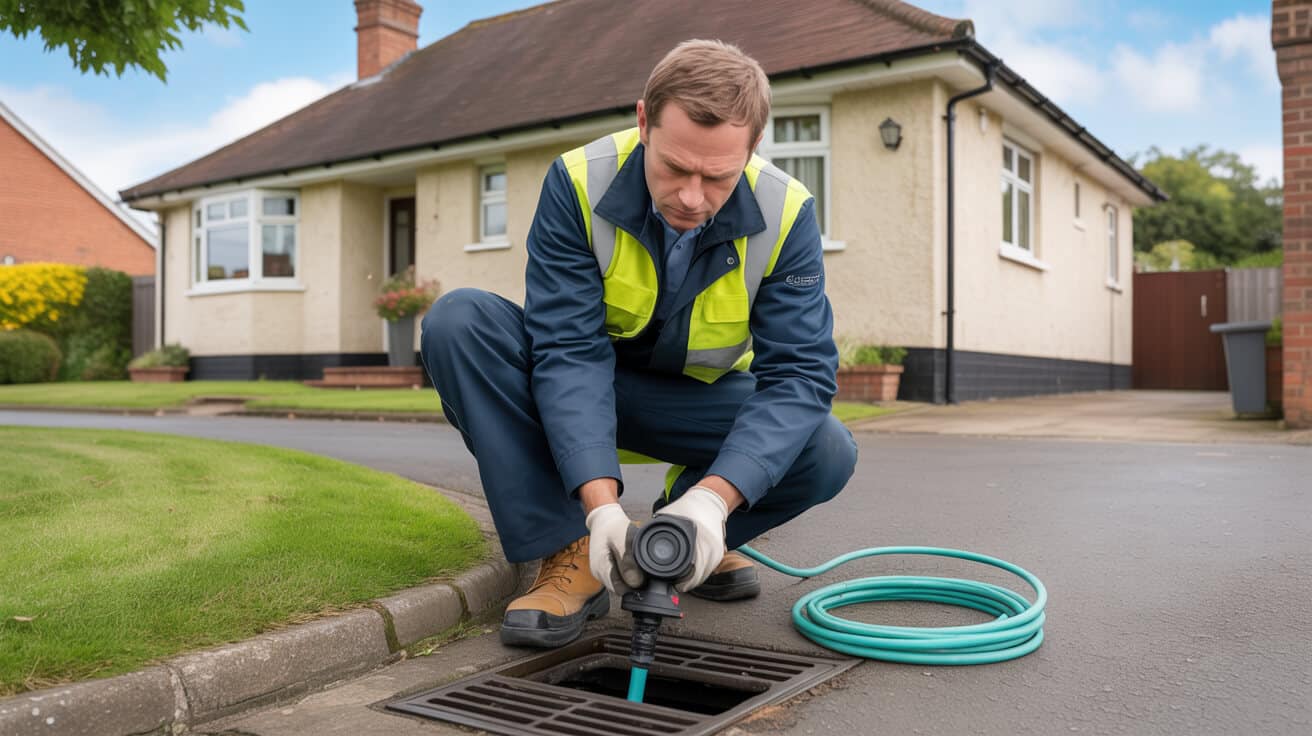
Most blockages don’t come out of nowhere. Your home is always giving small clues that few people notice until something overflows. The first step to keeping control—and your budget—is learning to spot these signs before they turn into a crisis.
The Red Flags: How Drains Whisper Before They Shout
- Slow Drainage: Basins holding onto water after a wash mean fat, hair, or sludge is already building up inside the pipes. Ignored, this is the single most common precursor to a full-blown clog ([WaterSafe](https://www.metrorod.co.uk/help-and-advice/blogs/top-5-signs-your-drains-are-blocked-and-what-to-do-about-it/?utm_source=openai)).
- Persistent Odours: That “sewer” aroma isn’t just a bad day. A lingering eggy or musty smell indicates decomposing matter—usually predictable, often preventable ([Draindoctor](https://www.draindoctor.co.uk/about-us/hints-and-tips/item/what-are-the-warning-signs-of-a-blocked-drain?utm_source=openai)).
- Gurgling Sounds: When a sink or bath makes “glugging” noises, air is pushing around a growing obstruction. This can mean partial blockages forming upstream ([HomeServe](https://www.homeserve.com/uk/living/plumbing-drainage/signs-your-drains-are-blocking/?utm_source=openai)).
- Water Re-appearing or Backing Up: If water rises from the shower when draining a bath or sink, you’ve got a shared pipe starting to jam.
These aren’t one-off flukes—they’re system alerts. Ignoring them is like dismissing a warning light on your car: the cost only goes up the longer you wait.
Testing and Vigilance—Simple Daily Habits
Pay most attention after heavy water use: Does the bath take longer to empty? Is there a whiff in the kitchen every night? Fill and drain a sink; a smooth, quick “vortex” is a healthy sign, but any hesitation means narrowing pipes. Check outside gullies for standing water or debris—blocked surface drains are a sign of problems below. These checks give you early, actionable information.
The earliest you act, the more freedom you keep. Leave it too long, and the drain decides for you.
Do Everyday Habits Really Cause Most Blockages? The Uncomfortable Truth
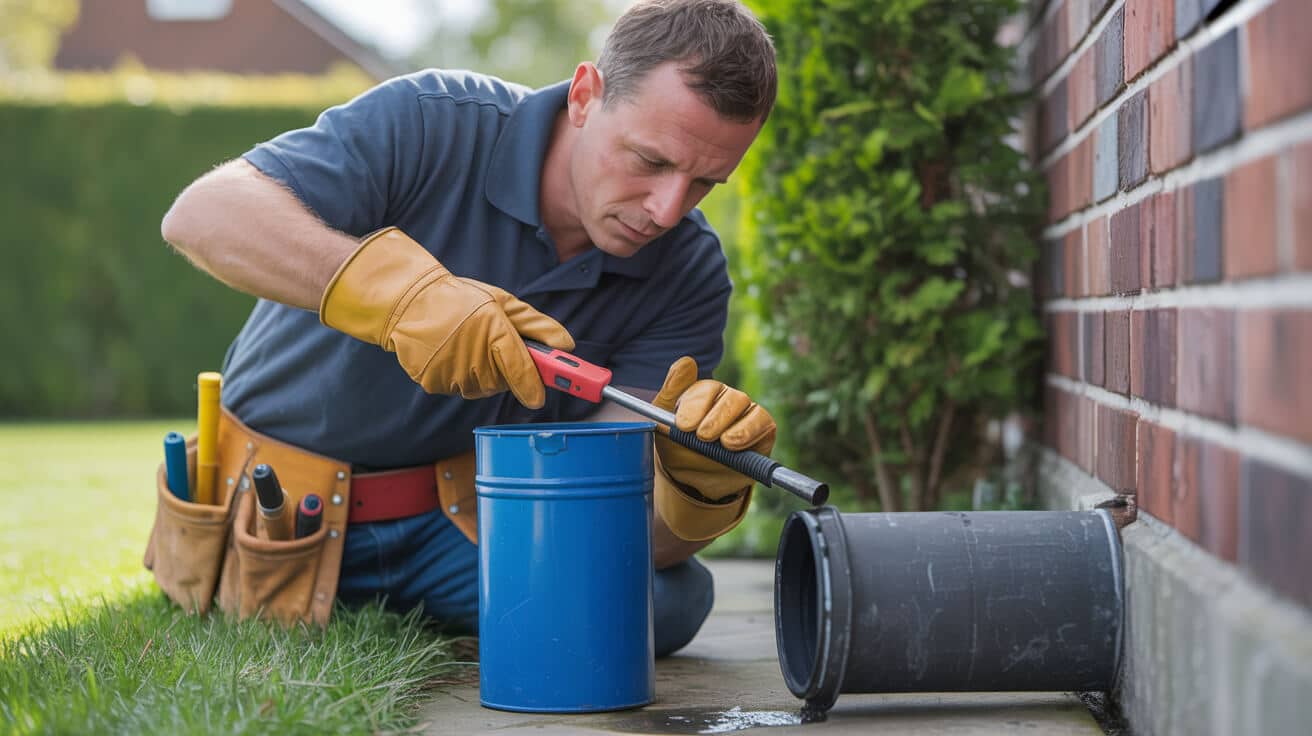
It’s tempting to blame storms, faulty pipes, or “bad luck in the old house.” But data and experience agree: daily routines, repeated over time, create the perfect storm for most drain blockages—across homes, rentals, and offices.
Hidden Culprits: 4 Frequent Offenders Behind UK Drain Clogs
- Kitchen Fats, Oils, and Grease (FOG): Poured into hot water and down the drain, they set inside cold pipes. Over 75,000 callouts yearly are directly linked to FOG build-up ([DrainDivision](https://draindivision.co.uk/10-common-causes-of-drain-blockages-and-prevention-tips/?utm_source=openai)).
- Non-Toilet Paper Items: Wipes, cotton buds, sanitary products don’t break down, instead latching onto pipe bends and forming “rafts” that catch more debris ([HandyExperts](https://www.handyexperts.co.uk/post/7-common-causes-of-a-blocked-drain?utm_source=openai)).
- Bathroom Build-Up—Hair and Soap: Every shower loses hair. Combined with soap scum, this coats pipes, creating the perfect net for anything else to get stuck ([ACW Drains](https://www.acwdrains.co.uk/tips/top-causes-of-blocked-drains-and-how-to-prevent-them-acw-draincare?utm_source=openai)).
- Foreign Objects and Scraps: Coffee grounds, food bits, even small toys or cleaning pads—all sneak past unwatched and become instant or “slow” blockages ([Which?](https://www.which.co.uk/reviews/drain-unblockers/article/how-to-unblock-a-drain-ap7ak9K2Wjyr?utm_source=openai)).
No one plans to block a drain—these habits creep in and become normal until trouble comes.
Habits to Stop Blockages Before They Start
- *Keep small bins* by every sink and toilet so wipes, cotton buds, and scraps never hit the pipes.
- *Instal cheap mesh strainers* in basins and showers—they catch hair and food before they start a build-up.
- *Three P’s Rule*: Only pee, poo, and paper go down the toilet.
- *Treat your pipes as a waterway, not a bin*: Even so-called “biodegradable” or “flushable” products don’t break down fast enough.
For landlords and agents, handing out written guidance or reminder cards to tenants pays off—documented advice cuts disputes and service calls.
Your plumbing lives with your choices—good habits save far more than they ever cost.
Can You Safely Unblock a Drain Yourself—or Are You Risking Damage?
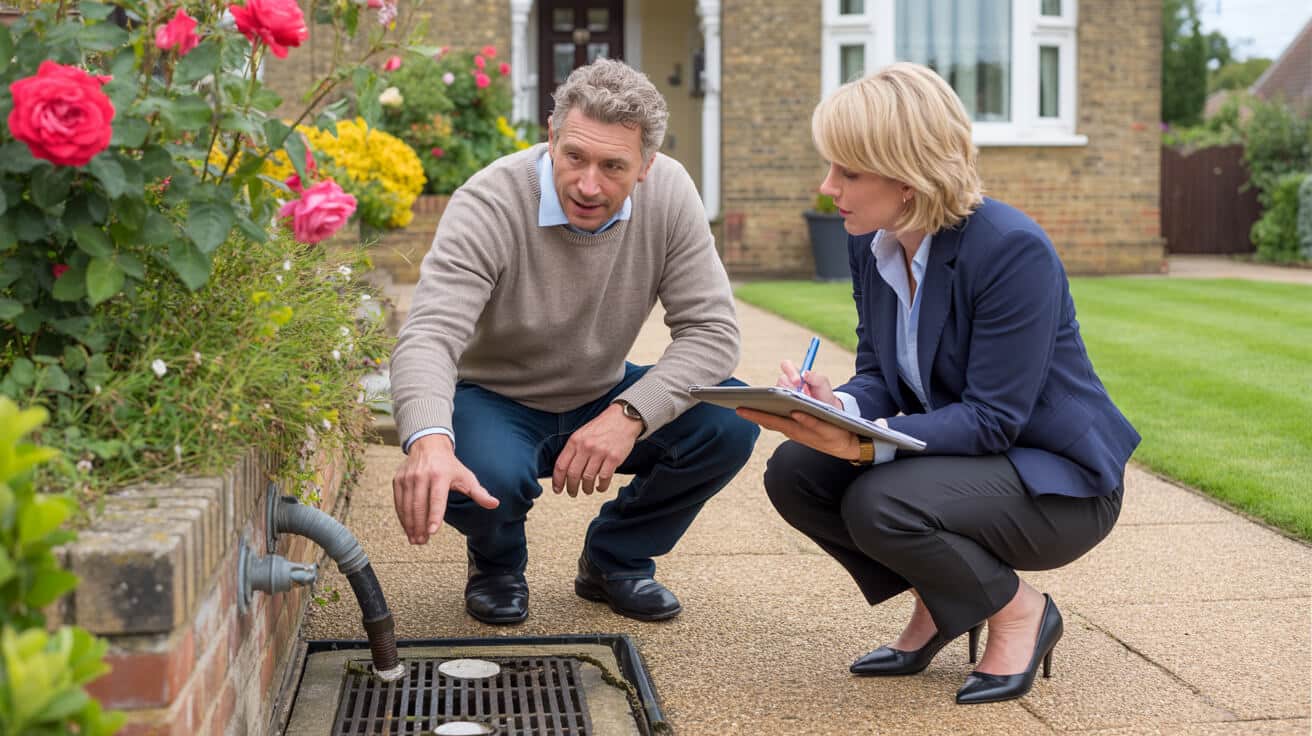
DIY offers real savings—and, sometimes, real frustration. Some blockages can be managed with a steady hand and the right tools, but modern drainage systems have limits. Mistakes can lead to property damage, voided warranties, or safety hazards.
Safe DIY: What’s Worth Trying?
- Plunger: Still the king for minor local blockages—use a sink/bath plunger, ensure a tight seal, and apply steady pulses.
- Boiling Water: Cleans recent FOG blockages in metal pipes only. Never use on plastic or cracked joints—warping and leaks could follow.
- Baking Soda & Vinegar: This common recipe won’t fix a true blockage but can help clear surface residue and mask odours.
- Manual Drain Snake/Auger: For shallow, known blockages, a flexible snake is a good call. Don’t force—excess pressure may break joints.
Try each only once. If the water stays put, you see backflow elsewhere, or plunging does nothing, it’s a sign of a deeper issue—stop before more damage is done.
Why Most Pros Avoid Chemical Unblockers
- Pipework Damage: Harsh chemicals break down not just clogs but old piping, pit lining, and even modern seals. Insurance rarely covers this risk ([ICE Cleaning](https://www.icecleaning.co.uk/blog/are-chemical-drain-cleaners-safe?utm_source=openai)).
- Health Dangers: Chemical fumes irritate lungs and eyes; contact burns are common. Always use PPE and plenty of ventilation if you must.
- Environmental Impact: Many drain cleaners pollute the environment, damaging streams and wildlife ([Water.org.uk](https://www.water.org.uk/news-item/how-to-unblock-drains/?utm_source=openai)).
Bottom line: If “off-the-shelf” solutions or friends’ tips haven’t worked fast, save yourself the risk and let a certified pro take over. It’s safer—and often cheaper—than the alternative.
Where Does Professional Plumbing Make the Difference?
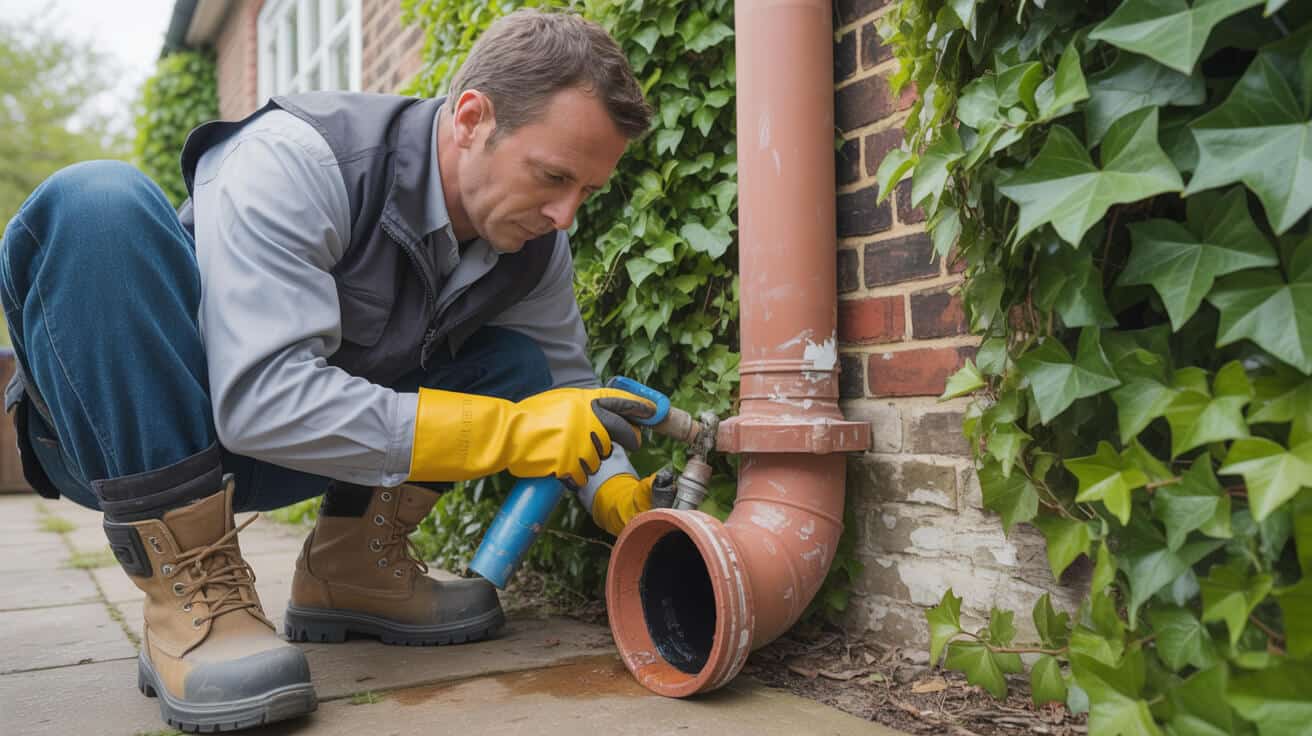
Even the best-maintained homes and buildings see trouble eventually. When DIY ends or repeated problems return, it’s not a failure—it’s a sign the job has outgrown plunger and patience. Here’s what professional support like Plumbers 4U brings to the table.
The Four Scaffolds Only Pros Can Provide
- Diagnostic Certainty (CCTV Inspection): No guesswork: camera surveys pinpoint blockages, pipe collapses, or root ingress with video evidence ([DynoRod](https://www.dynorod.co.uk/drain-unblocking-services/?utm_source=openai)). This means every job targets the source, not just the symptom.
- Rigorous Mechanical Clearance: High-pressure water jetting, mechanical rods, and specialist vacuums go beyond what any domestic tool can manage. These clear both the clog and sticky biofilm from pipes.
- Code-Compliant Repairs (WRAS & G3): Plumbing repairs require more than elbow grease. WRAS-approved parts and G3-certified methods mean every fix stands up to legal and insurance checks ([Plumbers 4U](https://plumbers4u.co.uk/services/drainage/?utm_source=openai)).
- Documented Assurance: Every job includes visual logs and written reports, clearly identifying what was wrong, what was done, and how to prevent a recurrence ([Watersafe](https://www.watersafe.org.uk/advice/information-for-landlords/?utm_source=openai)). For renters and agents, this avoids future deposit disputes or maintenance confusion.
Good plumbers fix more than pipes—they document your safety and asset value.
As a property owner, manager, or commercial landlord, this higher standard is your ticket to lower costs, faster responses, and no ambiguity when the insurers, clients, or new tenants ask for detail.
When Is It No Longer Sensible to Persist With DIY—And What’s the Cost of Waiting?
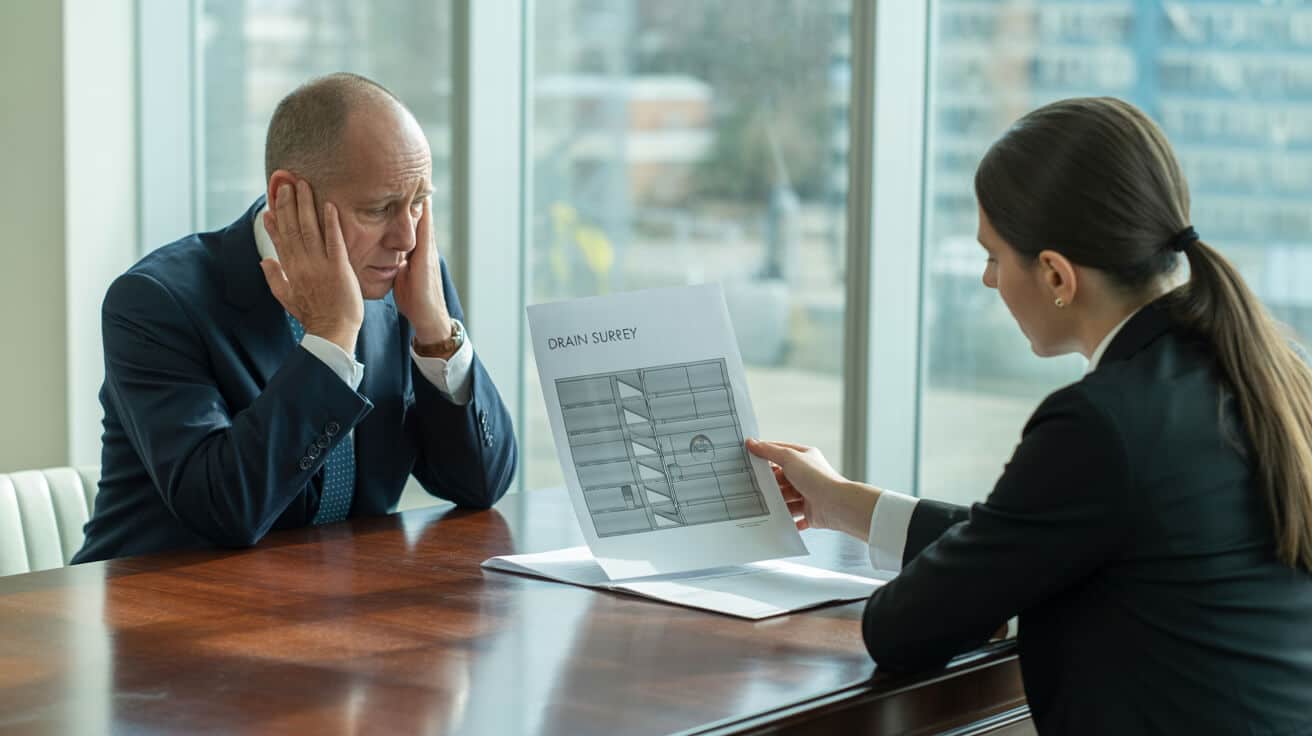
Drainage is one area where hope and hesitation often cost more than action. There’s always a moment when the next YouTube fix or “one last try” shifts from sensible effort to throwing money, comfort, and safety down the drain.
Spotting the “No-Fly Zone” for DIY Repairs
- Blockages Reoccur Within a Year: More than one backup in 6–12 months usually signals hidden pipework faults, recurring user habits, or partial system collapse ([TrustATrader](https://www.trustatrader.com/articles/how-to-prevent-blocked-drains?utm_source=openai)).
- Multiple Drains/Fixtures Block Together: It’s not “bad luck.” Rather, you’re seeing a main or branch line issue that DIY cannot reach.
- Any Sign of Wastewater Backflow: Rising water or sewage means a critical blockage—health risks go up, and fast isolation is a must ([Metropolitan](https://www.metropolitan.com/property-management/emergency-services/?utm_source=openai)).
- Repeated Tool or Chemical Failure: Several unsuccessful attempts (plunging, drain snakes, flushing) or a cycle of chemical treatments all mean “job too big for home kit.”
From here, escalation gets expensive: water damage, insurance snags, and non-compliance for landlords can follow. Quick decisive action isn’t just a technical call—it’s an act of risk management.
How Does Compliance and WRAS Certification Protect You as a Homeowner, Landlord, or Agent?
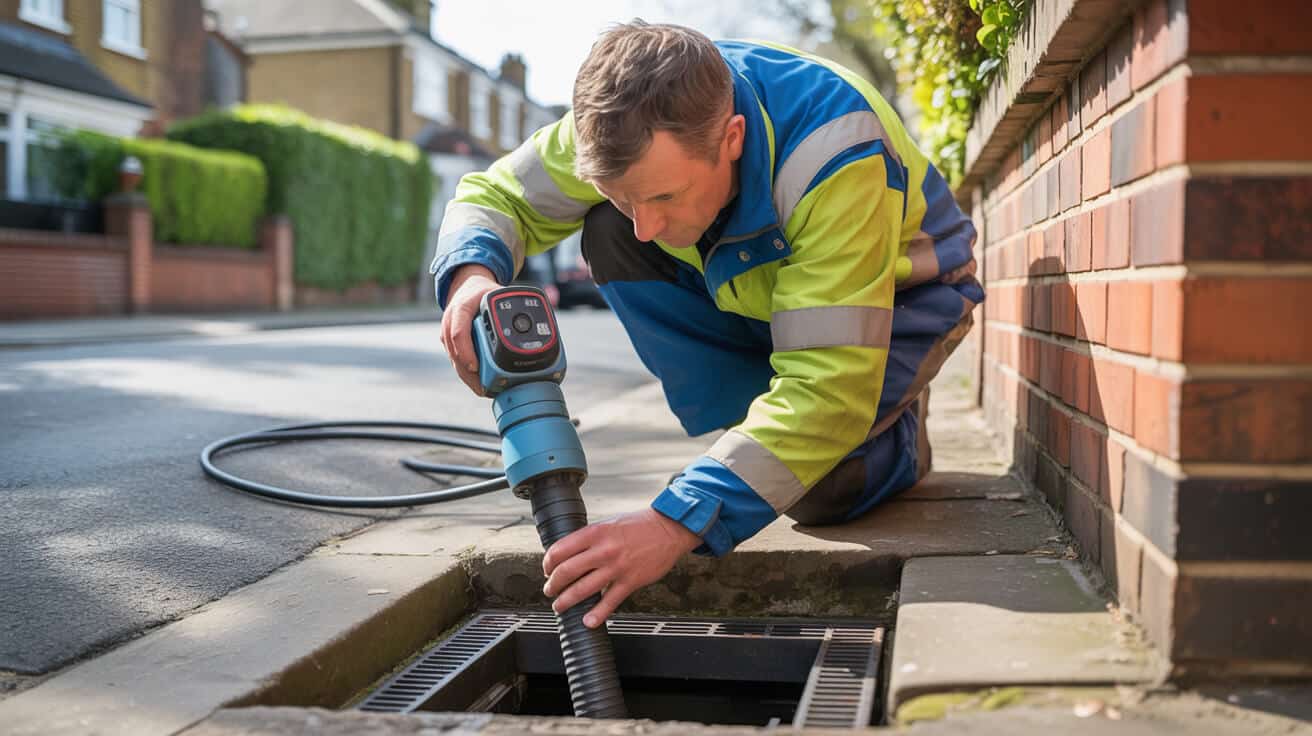
In a world of quick-fix videos and “mate-with-a-van” repairs, real compliance and certification remain your only shield against insurance voids, legal horror stories, or unhappy tenants. Regulations are non-negotiable—cutting corners rarely saves money.
Your Compliance and Certification Checklist
- WRAS-Approved Components and Labour: Only certified parts and fitting methods meet water regulations; using them is both a safety and financial necessity ([WRAS](https://www.wras.co.uk/consumers/materials_and_water_fittings/)).
- G3/WaterSafe Registered Work on Unvented Cylinders: Cylinder and high-pressure system jobs without these accreditations render the property’s safety documentation null—and can void your insurance, rental agreements, or sale contracts.
- Full Job Documentation: Quality plumbers supply line-item logs, part numbers, before/after images, and compliance steps. For agents, this arms you against deposit disputes or future maintenance ambiguity.
Regulation in the UK is constantly evolving; relying solely on a bill and handshake won’t cut it. Professional records, compliance, and certificates cement your status as a responsible owner or manager—essential when facing asset checks or portfolio reviews.
Documentation is your proof—without it, you’re only ever a single flood away from an insurance headache.
What Maintenance Steps Make Blocked Drains Unlikely—and Keep the Stress Off Your Shoulders?
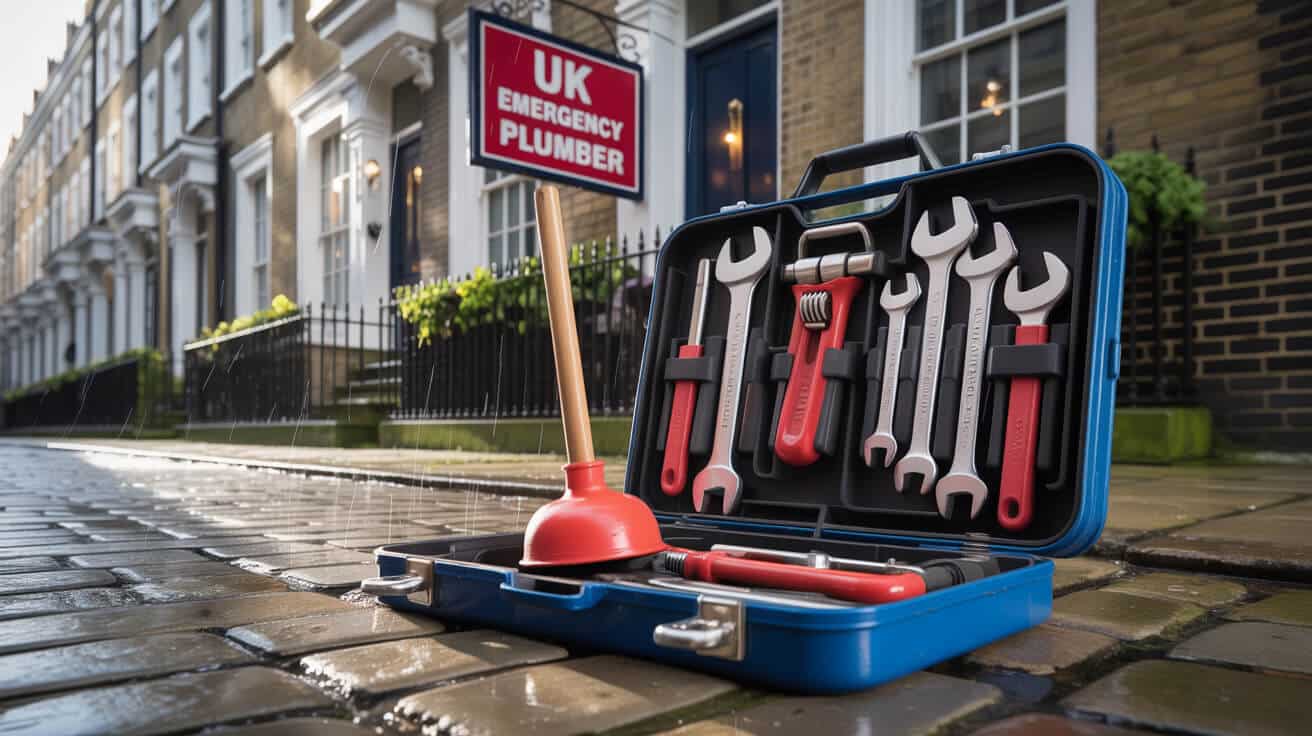
No one wants to be famous for “emergency calls at 2am.” Instead, the best property owners, managers, or agents work to stop blockages before they even start—often through simplicity, small habits, and scheduled checks.
The 5 Habits and Strategies for Optimised Drain Health
- Scrape, Don’t Pour: Everything from bacon fat to coffee grounds and vegetable peels goes to the bin—not the sink. This single discipline slashes clog risk in half.
- Instal and Clean Mesh Strainers Regularly: Whether kitchen or bathroom, these catch the debris that triggers blockages. Check and empty them as part of a quick cleaning routine.
- Three P’s Rule Policy for Toilets: Place reminders in tenant packs or common areas—non-toilet paper items are the main culprit in rental and commercial blocks.
- Yearly CCTV Drain Surveys: A 30-minute scan, often part of a routine checkup from providers like Plumbers 4U, identifies trouble long before symptoms appear ([MetroRod](https://www.metrorod.co.uk/help-and-advice/blogs/top-5-signs-your-drains-are-blocked-and-what-to-do-about-it/?utm_source=openai)). Cheaper than any emergency callout.
- Tenant and Occupant Briefings: Prevention doesn’t stick if only one person knows. Written guidance removes the “I didn’t know” defence and keeps responsibilities clear.
Smart owners and managers focus less on one-off heroics and more on culture and routine. This builds both asset value and reputation.
Why Savvy Owners and Managers Trust Plumbers 4U for Both Emergencies and Prevention
There’s no shortage of plumbers, videos, or bargain fixes in the UK. What sets a reliable partner apart—and why do repeat clients choose Plumbers 4U over the unknown? It’s a tight blend of technical rigour, transparency, and relationship-building.
The Plumbers 4U Approach
- WRAS and G3 Certified Engineers: Every technician meets, and usually exceeds, regulatory benchmarks.
- Transparent Process from Quote to Completion: Itemised, fair pricing—no hidden extras—supported by photo logs and clear explanations you (and your tenants or stakeholders) can actually use.
- Respectful Project Flow: Prompt arrivals, dust sheets, and clean workspaces every time. All jobs finish with a client handover: demonstration, tips, and Q&A.
- Documentation Designed for Owners and Agents: Our paperwork and digital records make insurance, compliance, and future works almost frictionless.
- Full Asset Coverage: Whether it’s a Victorian terrace, a care home, or a block of flats, Plumbers 4U matches the right engineer and method to the property and problem.
- No “Ghosting” or Up-selling: Support doesn’t evaporate after the invoice. Aftercare is built in, with advice and easy return visits when you need follow-up.
Good plumbing is invisible—until you need it most. We make sure that when you do, you’re in safe hands.
Property professionals want solutions, not “bargain drama.” With hundreds of repeat commercial and residential clients, Plumbers 4U’s reputation speaks loudest when you don’t see a problem—only a result.
Book Plumbers 4U Today and Turn Blockages Into One Less Thing to Worry About
A blocked drain isn’t fate—it’s a moment of warning. The risk is in waiting, not acting. Every hour you wait risks further damage: water stains, odours, mould, or property-value drops. Owners, landlords, agents, and managers who call early protect not just the property, but their reputation and stress levels, too.
With Plumbers 4U, you’re choosing:
- Certified, Same-day Expertise: From emergency unblocks to routine CCTV health checks, only WRAS-compliant methods are used.
- Total Transparency: Detailed, jargon-free quotes and mapped-out repair steps keep you and your stakeholders fully briefed. No nasty surprises.
- Impeccable Handovers: Tidiness, clarity, and a short walk-through are standard—nobody gets left with questions or confusion.
- Universal Property Support: From single flats to commercial portfolios or public sector assets, our teams adapt the fix and the paperwork to match your needs.
- Ongoing Aftercare and Guidance: We build relationships, not just invoices—our aftercare means there’s always help when you need it.
Don’t wait for a clog to become a crisis. Contact Plumbers 4U now—and experience why so many across the UK trust us for fast, certified, and friendly support that keeps their homes, tenancies, and investments moving.
Frequently Asked Questions
How can you catch early blocked drain warning signs before they turn into costly emergencies?
Minor warning signs of drain trouble often go unnoticed, but catching them early prevents expensive emergencies. Most people ignore subtle shifts—like puddling in the kitchen sink before dawn, “glugging” noises after a flush, or water rising in a bath after the washing machine runs. Yet, these signals point to pressure building along your horizontal pipe runs or toward the main stack. According to fresh trade figures, over half of major blockages in the UK brew quietly for two to six weeks before they snowball into property-wide backups or water damage (Drainsure 2024).
You’ll notice a mounting problem if multiple plugholes burble at once, the shower drains slower each week, or faint odours start drifting from one room to another. If you manage commercial spaces or blocks, keep an eye on wastewater pooling near outdoor gulley covers after it rains; this often flags a building-wide issue, not just a bathroom hiccup.
What you brush aside in the morning will often cost you tenfold by dinnertime.
Spotting “linked” warning signs—where two or more appear within a week—puts you ahead of 80% of owners, who delay responses until significant water damage or compliance headaches force their hand. Proactive managers document these issues, then schedule inspections before renewal periods or key audits. Catching drainage issues early means protecting your investment and maintaining tenant confidence.
When should you escalate fast?
- More than one drain backing up or bubbling at the same time
- Persistent standing water after moderate use or rainfall
- Unusual moisture patterns around flooring, pipes, or behind units
If in doubt, take photos and reach out for a system health check. Early intervention is now a strong factor in successful property insurance claims—and a staple for facilities teams that sleep easy.
Which everyday habits fuel blocked drains—and how do the best-run properties break the cycle?
It’s the day-to-day choices—not single mistakes—that build most blockages. Pouring used oil, rinsing food scraps, sweeping hair down the shower, or trusting “biodegradable” wipes to break down quickly all create a slow risk cocktail. Industry analysis shows 73% of blocked drain callouts traced the cause to routine misuse across multiple occupants or shifts, not a freak accident (South East Water, 2023).
For property portfolios or HMOs, the problem multiplies. With varied routines and new faces, habits slip—one person skipping bin duty or ignoring plughole philtres can destroy months of smooth running. Even in single-family homes, letting the “three P’s” slide (pee, poo, paper only) or failing to empty basin traps regularly stacks the odds against you.
A shift comes when managers design behaviour into their systems:
- Make philtres visible in every kitchen, bathroom, and utility room—replacing or cleaning these every two weeks is a game-changer.
- Paste illustrated “what can’t go down here” stickers above every sink, and confirm in welcome packs for new tenants.
- In multi-unit blocks or busy commercial buildings, rotate a “waste champion”—someone who does a basic check, snaps dated photos, and reports issues once a month.
Inconsistent micro-habits do more damage over time than any single catastrophic mistake.
Managed properties using these routines saw blocked drain claims drop by 40% in controlled studies (Lettings Hub, 2024). Smart landlords clarify expectations with signed agreements, and support them with regular, simple waste disposal reminders. The results? Fewer emergencies, happier tenants, and savings that far outweigh the upfront effort.
What next-level routines prevent disruption?
- Emptying and wiping every plughole trap, binning fats and food before they reach any pipe
- Running monthly group checks for philtres in communal areas; rotate the job for fairness
- Keeping digital records of philtre swaps, training completions, or system checks for easier dispute resolution
If the risk feels like it’s always “someone else’s fault,” now’s the time to level-up. Plumbers 4U provides tailored guidance and help sheets—so even the busiest block or business can build habits that outlast every tenancy.
Where does DIY stop and professional intervention become the safer bet in blocked drain situations?
DIY drain remedies fit very narrow situations: single plughole blockages just discovered, easy-to-reach hair or food buildup, or local slowdowns that respond right away to a plunger or simple hand auger. Tenancy agreements and landlord insurance nearly always limit self-fix rights to these surface, non-invasive actions. Attempting more—especially using coat hangers, “drain sticks,” or “one size fits all” home clearing chemicals—often makes things worse.
Once water backs up into multiple outlets, two or more rooms, or a new leak or odour appears after your fix, you’re past the DIY threshold. Most domestic plumbing systems (especially in blocks built post-2000) use finer pipework and push-fit joints. Aggressive poking, over-plunging, or unlicensed chemical mixes can crack or dislodge pipework behind walls, invalidate appliance warranties, and introduce bigger water hygiene or insurance claims.
Recent survey data shows DIY “overreach” is now named as the leading cause for protracted and expensive drain remediation—especially when interventions aren’t logged (UK Property Trust, 2024).
It’s not defeat to call for help—it’s the path to a fix that lasts and doesn’t leave you liable.
What’s the clear red line for calling the pros?
- Unblocking fails in one go and the problem returns within a week
- Water, foam, or smells show up in places they never did before
- DIY efforts reveal leaks, damp patches, or hidden pipe sweating
Always document what you tried, save the receipts, and keep photos. Full transparency supports faster diagnosis, helps with claims, and lets Plumbers 4U match the right engineer and kit to your situation the first time.
Why do “off-the-shelf” drain chemicals cause more harm than good, and how do you handle blockages safely and legally?
Shop-bought drain openers promise miracles but often create hidden damage or new legal headaches. Over-the-counter gels and powders use sodium hydroxide, lye, or aldehydes—these break down grease and hair but also weaken plastic joints, trigger micro-leakage at rubber seals, and corrode copper over time. A new WRc study (2023) highlights jumps in pipe failures and warranty claims linked directly to aggressive domestic unblockers used outside of professional supervision.
Mixing brands, or combining a supermarket gel with “old tricks” like baking soda or bleach, leads to infamous “drain volcanoes”—events the London Fire Brigade responds to weekly. Importantly, compounds that linger in pipes get flushed into watercourses, now a target of proactive Environment Agency audits with fines for properties (or whole blocks) found to discharge non-compliant chemicals.
Every shortcut you try with chemicals adds a debit to your compliance ledger—and sometimes, your safety.
What are the proven alternatives?
- Stick to mechanical methods: plungers, augers, or pro wet-vacs for individual sinks; don’t escalate to chemicals unless instructed in writing by a qualified engineer.
- If a pro must use a treatment, they document every batch, ventilate the room, and confirm leak-free outcomes.
- In multi-occupant buildings, monthly pro trap cleans with detox-grade detergents create robust logs for audits, sales, or insurance.
Certified plumbers record every intervention, and sign off systems once blockages are gone, so you’re never left guessing or at regulatory risk. Plumbers 4U uses WRAS and WaterSafe standards at every step, protecting your compliance record.
What compliance steps matter after a chemical is applied?
- Full disclosure and documentation of what, when, and where to everyone who manages or insures the property
- Require final leak and flow tests by a certified tech—never re-occupy until passed
Partnership with Plumbers 4U means zero-nonsense compliance, with every fix logged and ready for review. That’s how asset champions avoid silent violations.
What specialist gear and expertise do qualified plumbers bring to blockages beyond normal home or property fixes?
When blockage signs spread to more than one drain, floor, or room—or when previous fixes only shuffle water and odours around—it’s time for a professional with the right kit. Expert teams like Plumbers 4U come armed with high-definition drain cameras, acoustic fault tracers, and system-specific mechanical clearing equipment. Unlike household rods or cables, these tools apply the right pressure and head attachment for pipe type and layout, preventing accidental damage.
Top engineers not only clear the immediate problem, but also:
- Map the system, using photos and flow diagrams, tracing block origins (including collapsed, root-invaded, or dropped-run cases common in older UK stock)
- Provide a digital logbook—essential for letting agents, block managers, and owners seeking insurance or warranty protection
- Complete work with a future care plan and upkeep reminders, supporting claims and resale value
Prevention is more than a one-off—it’s building forward proof and audit trails for the asset owner.
Plumbers 4U integrates compliance at every job, with no-upsell, fixed pricing. Many insurance underwriters and local authorities now require professional diagnostic reports before processing claims for drain or damp-related property damage. Getting a pro involved early isn’t just about fixing today’s issue—it’s about demonstrating responsibility to all your stakeholders.
What “proof points” set true professionals apart?
- WRAS and WaterSafe-accredited teams on every visit
- Actionable service logs and plain-language summaries fit for audits or tenant lease packs
- Access to no-dig surveying and targeted repairs, slashing future callouts or claims
Managed properties rely on this level of specialist attention to keep risk and cost low and stakeholder trust high.
How do top property managers and agents transform drain maintenance from a problem into an asset—why is Plumbers 4U the sector benchmark?
Industry leaders now treat drain health like planned asset management—not an afterthought or cost centre. The best property managers fold proactive measures into tenancy onboarding, with illustrated “waste rules,” philtre swap schedules, aftercare reminders, and annual induction or training for staff. New research from RICS (2024) found that blocks with pre-lease surveys and year-round scheduling of drain care dropped insurance claims by 42% and slashed disputes over liability by over 50%.
Success is built on three pillars:
- Educate: Combine walkthroughs with physical signage and onboarding materials, so every occupant knows routes and reporting procedures for binning, maintenance, and emergencies.
- Audit: Use annual or semi-annual camera surveys, then log basic philtre swaps, training events, and all engineer reports. Digital logs are now requested as standard by insurance and local authorities.
- Partner: Form a service relationship where your plumber acts as infrastructure custodian, not just a fix-on-demand. Express response protocols, transparent and fixed pricing, and aftercare packs underpin real asset resilience.
You can’t build reputation on hope—only on transparent action and evidence every stakeholder can see.
Why do those holding the sharpest reputations consistently opt for Plumbers 4U? Every engineer is accredited, every job is logged, and every fix includes actionable maintenance guidance. The no upsell, “here’s-the-proof” culture reassures asset holders and regulators. When you work this way, your portfolio becomes insurance-readier, valuation-proofed, and trusted by everyone in your supply chain.
What differentiates the sector’s top asset managers?
- Demand copy of all compliance certs—no exceptions
- Schedule preventative care with annual “no dig” drain surveys and monthly philtre swaps
- Invest in team and tenant upskilling at onboarding, then document it all
Your asset deserves more than reactive repairs—it needs a proactive, standard-driven care culture. Plumbers 4U is the strategic partner trusted to protect reputation, compliance, and long-term value.

